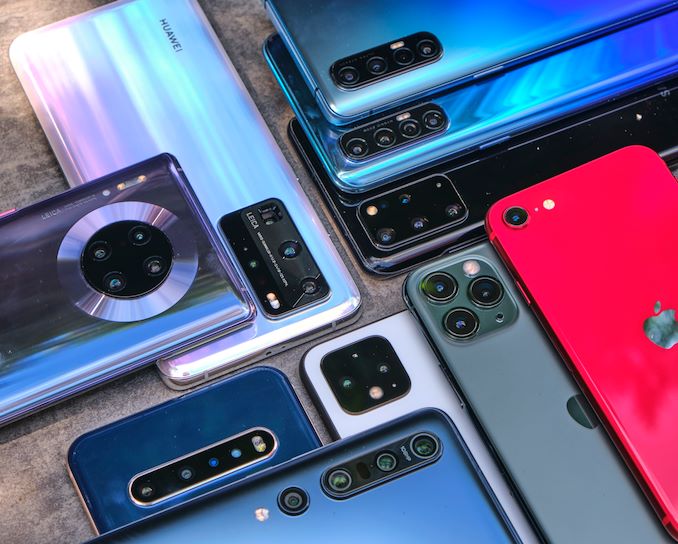Featured
Q2: Lockdown Takes Tolls On S/Africa, Nigeria As Africa’s Phone Market Dips 6%
Published
6 years agoon

- Transsion brands claims 45.2% market share
- Samsumg shares 19%; Huawei 8.8%
- Smartphones: IDC predicts 4.2% growth in Q3; 4.4% in 2021
___________________
Africa’s overall mobile phone market saw shipments decline 6 per cent quarter on quarter (QoQ) in Q2 2020, according to the latest figures announced by International Data Corporation (IDC).
Read Also:
The IDC said in its newly released Global Quarterly Mobile Phone Tracker shows that Africa’s smartphone market remained flat in Q2 2020, experiencing just 0.1 per cent growth QoQ, while the region’s feature phone shipments declined 10.6 per cent.
According to the technology research and consulting services the impact of the Covid-19 pandemic on smartphone shipments has been felt differently across the region.
It highlighted for instance that, while shipments to South Africa and Nigeria declined 16.8 per cent and 6.8 per cent, respectively, QoQ in Q2 2020, Egypt recorded a 2.2 per cent increase.
Both South Africa and Nigeria adopted strict lockdown measures in April and May, which included the closure of non-essential businesses. By contrast, Egypt adopted a more flexible approach and allowed limited hours of business operations during the second quarter.
Transsion brands (Tecno, Itel, and Infinix) continued to lead the smartphone market in Q2 2020 with a unit share of 45.2 per cent. Samsung and Huawei followed with respective unit shares of 19 per cent and 8.8 per cent.
In terms of value (US dollar), Transsion held 30.1 per cent share, while Samsung accounted for 27.8 per cent share.
The average selling price (ASP) for smartphones declined 9.8 per cent QoQ in Q2 2020, partially due to the market conditions created by the pandemic and partially due to a continuation in the declining trend of prices.
The $0 to $80 price band has gained notable share of the smartphone market since the start of the pandemic, growing 18.2 per cent QoQ.
The availability of such devices helped brands to cope with the weak demand and price consciousness that flourished during the pandemic.
The various lockdowns implemented during Q2 2020 led to the growth of the online distribution channel, while enforced closures caused the decline of physical retail in the region.
“Despite a striking increase in online sales, the channel still only accounted for 3.2 per cent of the total mobile phones shipped across Africa in Q2 2020,” says Ramazan Yavuz, a senior research manager at IDC.
He further stressed that development of the online channel remains fragmented across the region and the infrastructure needs more investment to reach a more promising stance.
According to him, while the top countries and urban centers benefited from online sales, the diffusion to a larger audience requires time.
4G/LTE-enabled devices saw their share of smartphone shipments increase to 81.1 per cent in Q2 2020, spurred by the declining ASP of these devices, according to the report.
“The absorption of 5G-enabled smartphones in the market remained below 1 per cent as the cost of 5G devices is prohibitively high and beyond the reach of most consumers,” says George Mbuthia, a research analyst at IDC.
“Also, the telecom infrastructure required to underpin 5G adoption is still undeveloped, with most countries still only conducting limited 5G trials,” he concluded.
IDC expects Africa’s smartphone market to grow 4.2 per cent QoQ in unit terms in Q3 2020 and by 4.4 per cent year on year in 2021 as markets start to recover from the negative effects of Covid-19.
With the reopening of markets, the retail channel is also expected to recover, although not to the levels it enjoyed before the pandemic.
Share this:
- Click to share on X (Opens in new window) X
- Click to share on Facebook (Opens in new window) Facebook
- Click to share on WhatsApp (Opens in new window) WhatsApp
- Click to share on Pocket (Opens in new window) Pocket
- Click to share on Telegram (Opens in new window) Telegram
- Click to email a link to a friend (Opens in new window) Email
- Click to share on LinkedIn (Opens in new window) LinkedIn




